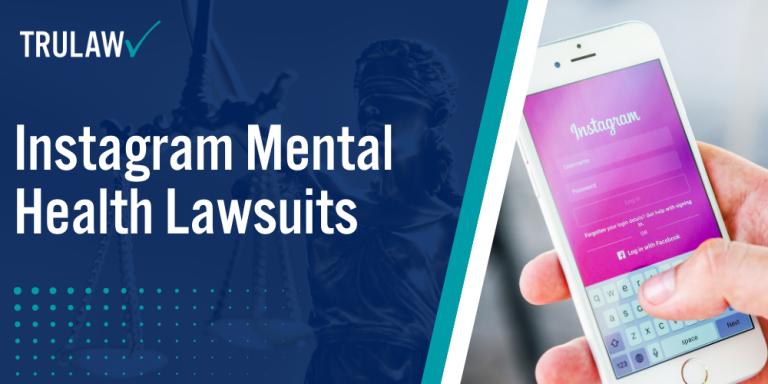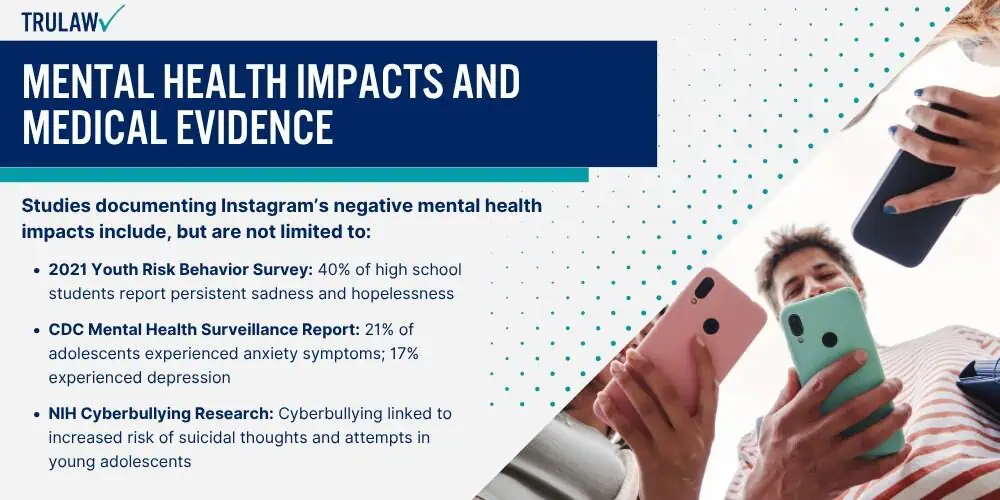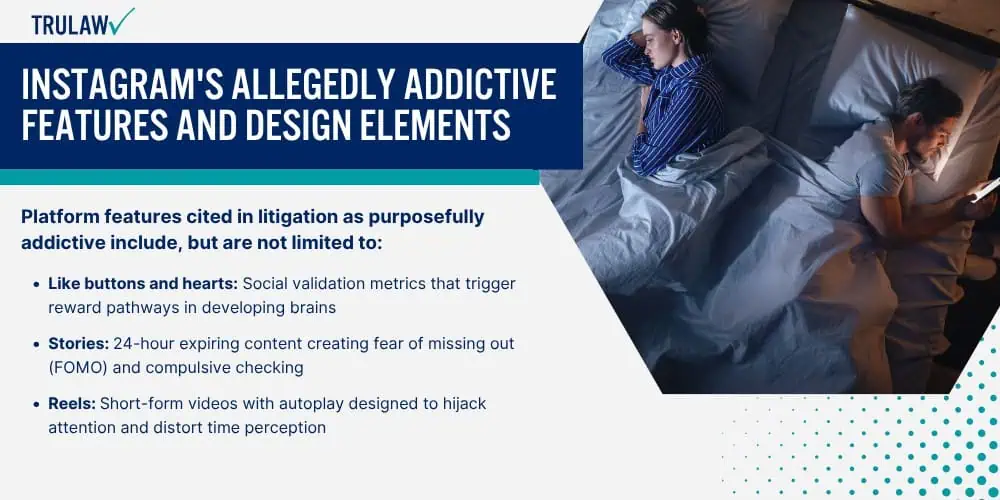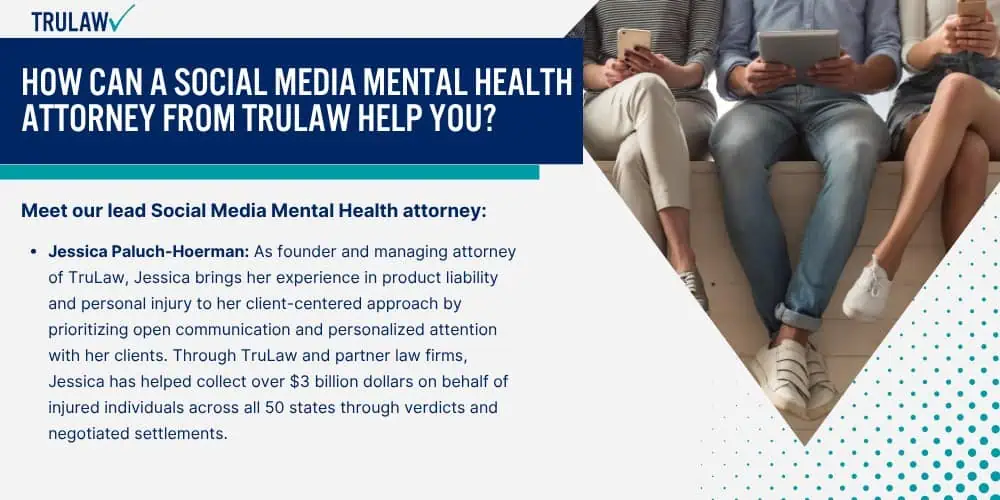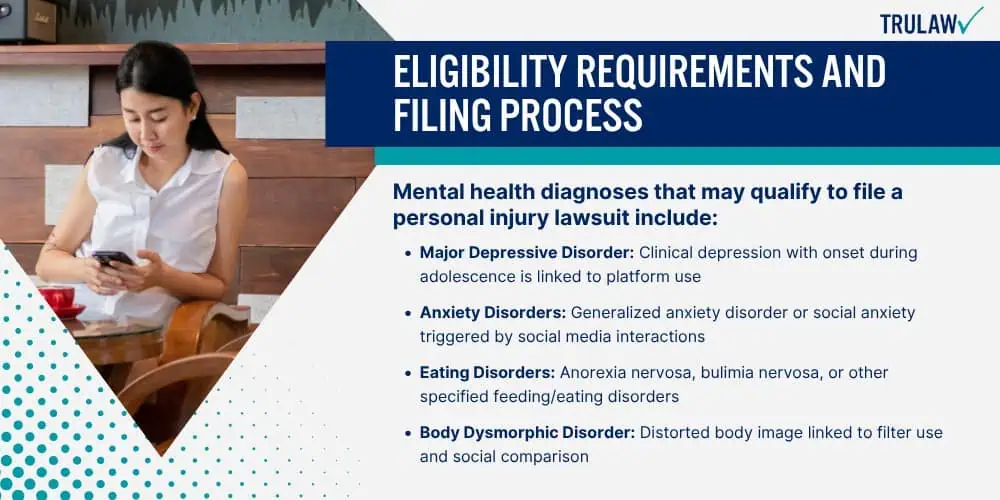The consolidation of over 1,867 cases into multi-district litigation MDL 3047 represents one of the largest coordinated legal actions against social media companies in U.S. history, though similar cases against other social media companies continue to emerge nationwide.
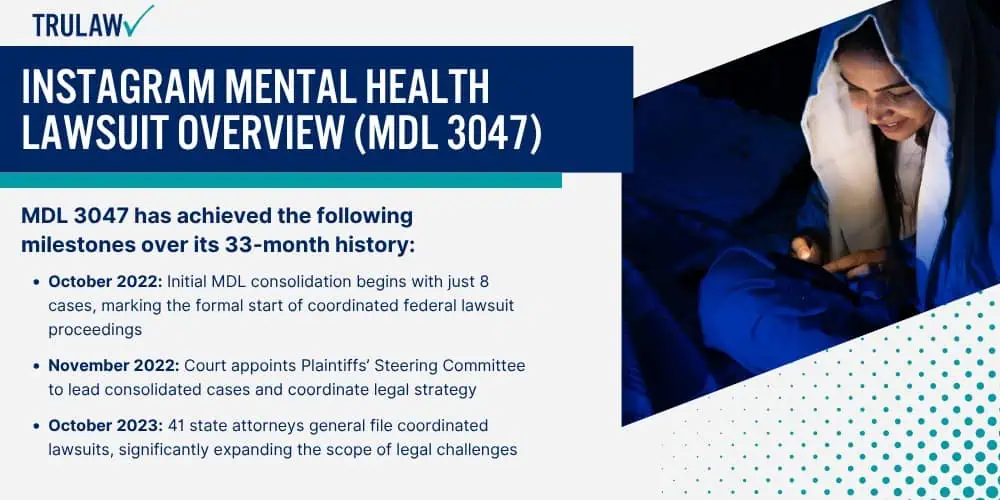
The litigation has advanced significantly with bellwether trial selection complete, though trials initially scheduled for October 2025 have been postponed until 2026 following pretrial schedule modifications.
The Evolution of Social Media Addiction Litigation
Frances Haugen’s explosive October 2021 whistleblower testimony before Congress marked a turning point in public awareness of Instagram’s internal knowledge about platform harms.
The former Facebook data analyst revealed internal documents showing the company knew Instagram was toxic for teen girls, with 30% reporting the platform made body image issues worse.
This revelation catalyzed the formation of MDL 3047 in October 2022, when the Judicial Panel on Multidistrict Litigation consolidated the growing number of social media lawsuits filed as a class action lawsuit seeking accountability.
MDL 3047 has achieved the following milestones over its 33-month history:
- October 2022: Initial MDL consolidation begins with just 8 cases, marking the formal start of coordinated federal lawsuit proceedings
- November 2022: Court appoints Plaintiffs’ Steering Committee to lead consolidated cases and coordinate legal strategy
- October 2023: 41 state attorneys general file coordinated lawsuits, significantly expanding the scope of legal challenges
- November 2023: First major victory as court partially denies Meta’s motion to dismiss, allowing key claims to move forward
- October 2024: Judge Rogers delivers another win for plaintiffs by allowing failure to warn claims to proceed
- February 2025: Wrongful death claims survive dismissal motions, opening the door for families seeking justice
- June 2025: Court selects bellwether cases from both school districts and individual plaintiffs for initial trials
- July 2025: Social media MDL expands to 1,867 pending actions, demonstrating the litigation’s massive scale
This litigation parallels historic mass tort cases against tobacco and opioid companies, where internal documents revealed corporate knowledge of product dangers while publicly denying harm.
Legal experts note similar patterns of targeting vulnerable populations, suppressing negative research, and prioritizing profits over public health warnings.
Legal Theories Behind Instagram Addiction Claims
The four primary legal theories driving this litigation challenge Meta’s corporate conduct and platform design from multiple angles.
Strict liability for design defect claims argue Instagram’s features are inherently dangerous and unreasonably harmful to adolescent users.
Failure to warn allegations center on Meta’s knowledge of mental health risks without adequate disclosure to users and parents.
Negligent design and oversight claims focus on the company’s duty of care to minor users and young people who are particularly vulnerable to platform manipulation.
Consumer protection claims address deceptive marketing practices targeting youth.
Court filings identify seven platform design features alleged to constitute defective product design:
- Infinite Scroll: Endless content streams that automatically load without user action, eliminating natural stopping points
- Variable Ratio Reinforcement: Randomized delivery of likes and engaging content mimicking slot machine mechanics to trigger compulsive checking
- Beauty Filters: Face-altering technology that promotes unrealistic appearance standards, contributing to body dysmorphia in teens
- Strategic Push Notifications: Alerts timed to exploit moments of vulnerability, using machine learning to maximize re-engagement
- Social Validation Metrics: Public display of likes, followers, and engagement statistics that turn peer interaction into competitive scoring
- Ephemeral Content: Disappearing stories that create artificial urgency and trigger fear of missing out (FOMO)
- Algorithmic Content Curation: Recommendation systems that push increasingly extreme content to maximize engagement, often leading vulnerable users to harmful material
Judge Rogers’ October 2024 ruling dealt a significant blow to Meta’s Section 230 defense strategy, finding that design defect claims aren’t barred by platform immunity protections.
The District Court distinguished between third-party content (protected) and Meta’s own product features and algorithms (not protected), establishing precedent for holding social media companies accountable for platform architecture choices.
If you or a loved one experienced severe mental health issues including depression, anxiety, eating disorders, or suicidal ideation related to Instagram use as a minor, you may be eligible to seek compensation.
Contact TruLaw using the chat on this page to receive an instant case evaluation that can help you determine if you qualify to file an Instagram Mental Health Lawsuit today.
